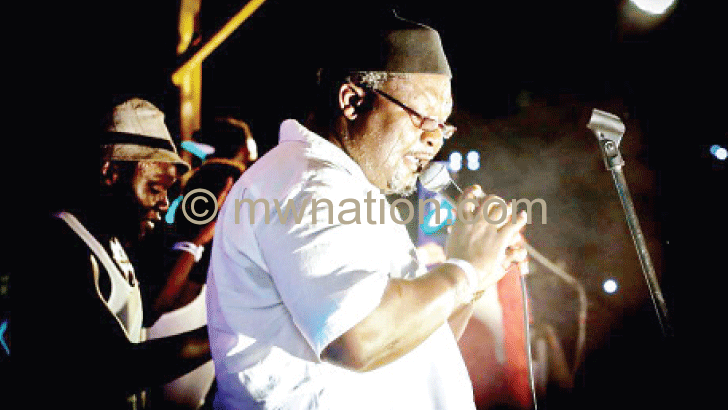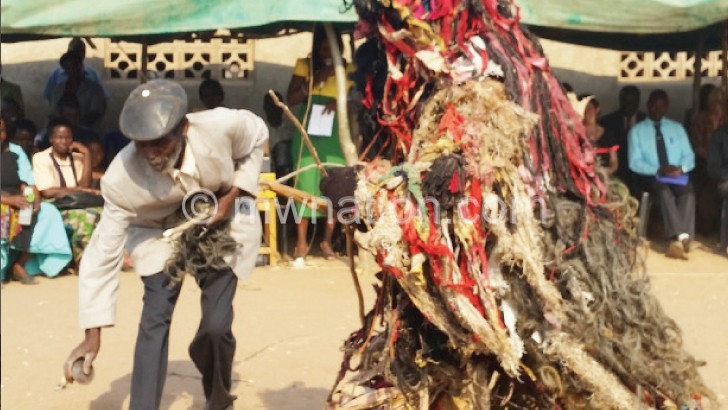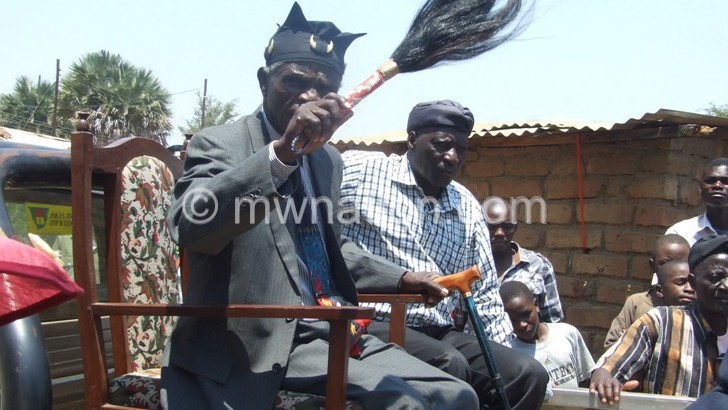Beware of the in-laws

On top of being the Warm Heart of Africa because of her people’s friendliness, Malawi is also known as a country with polite and respectful people. This basically is because of the cultural setup in the country.
Different cultures in Malawi behave differently as a show of respect for elders and authorities.
Kneeling, squatting, taking hats off, putting hands together when talking to the elders are some of the things people do in most traditions to show their respect.
But when it comes to respect for fathers and mothers-in-law, there is more than just that.
In some tribes in the Central Region, when a woman bumps into her mother or father-in-law, she walks away a few metres, kneels and waits until they pass.
For the Tumbuka, Ngonde and Tonga tribes, their culture entails a woman not to even lay eyes on her father-in-law as a sign of respect.
In an interview with Chill, Senior Chief Kalonga said this tradition was put into practice to instill a sense of respect between a woman and her father in-law.
He said even if the father-in-law dies, the woman is not supposed to attend his funeral, and if she does, she has to cover her face up so that she does not see her father-in-law’s final resting place.
Kalonga further explained that in an event where the father-in-law wants to see her daughter in-law, he is supposed to give his something of value.
In the typical Tumbuka set-up, a woman’s wedding day marks the end of her seeing her father-in-law.
However, this tradition is being diluted little by little.
Despite this being an ancient tradition, most of the people especially those who live in urban areas seem to have ceased practising.
A Blantyre-based Manja resident ChimwemwePhiri thinks this practice is abusive to women as it hinders their freedom of association.
“I really do not see its significance,” she says.
While other people see this as being problematic, others feel it is vital as a woman has nothing to discuss with her father-in-law.
“I have been married for six years but in all these years I have not had the chance to sit down and chat with my father in-law, but I have no problem with this because there is nothing I can say I would want to sit and talk to my father-in-law,” explains Florence Mwase.
However, Kalonga says the tradition was put in place to infuse discipline between a woman and her father-in-law and not to enslave her.
“This is just a tradition like any other. It is something that was passed on to us by our forefathers. It is a tradition that has no harm on the people. We should, therefore, keep practising it.
“Only those traditions that bring harm and bad effects on the people should be revised and curbed,” said Kalonga.






This does not represent Malawi or a quarter of Malawian culture at all, talk about Ngonis or Chewa, Sena, or Lomwe who are major tribes with influence in Malawi
it is not for all of us but for those whose culture deserve to be,but we have to learn each day other than critising,it’s aculture of the said areas not others.If this culture was instituted it wasn’t said to be presenting Malawi as a whole just becoz the malawi tribes came from different countries of origin with different cultures,but those who want to contnue thirs leave them and you need to go and ask then learn from them.